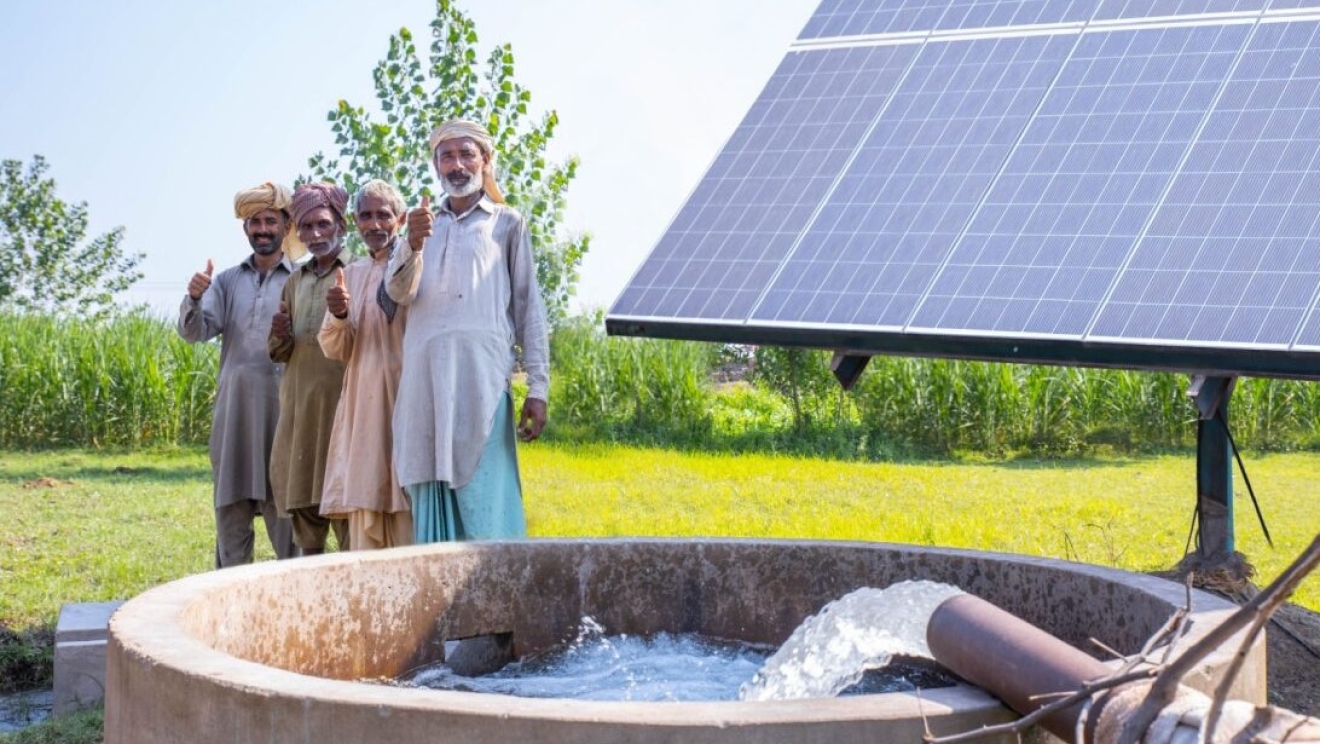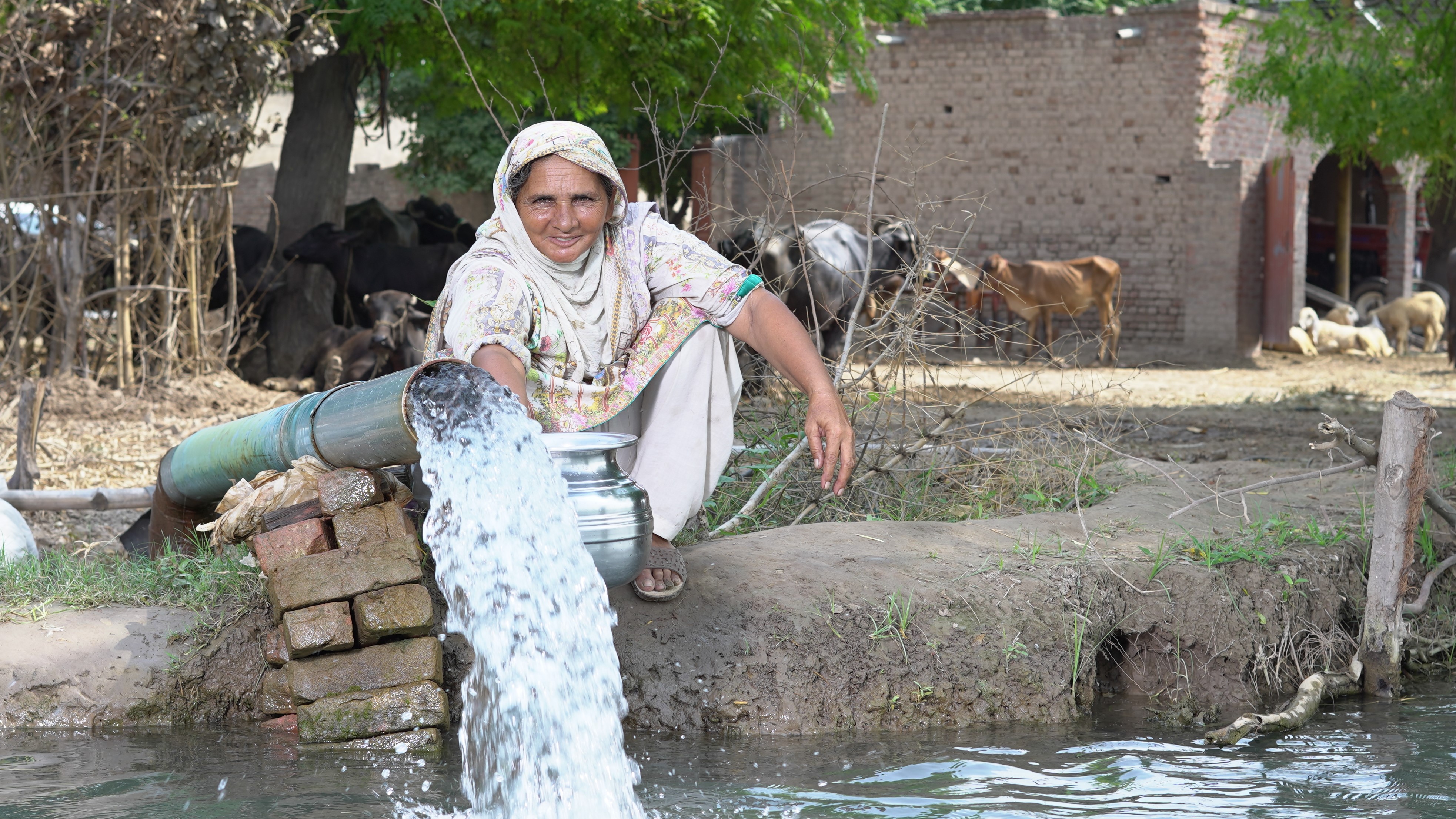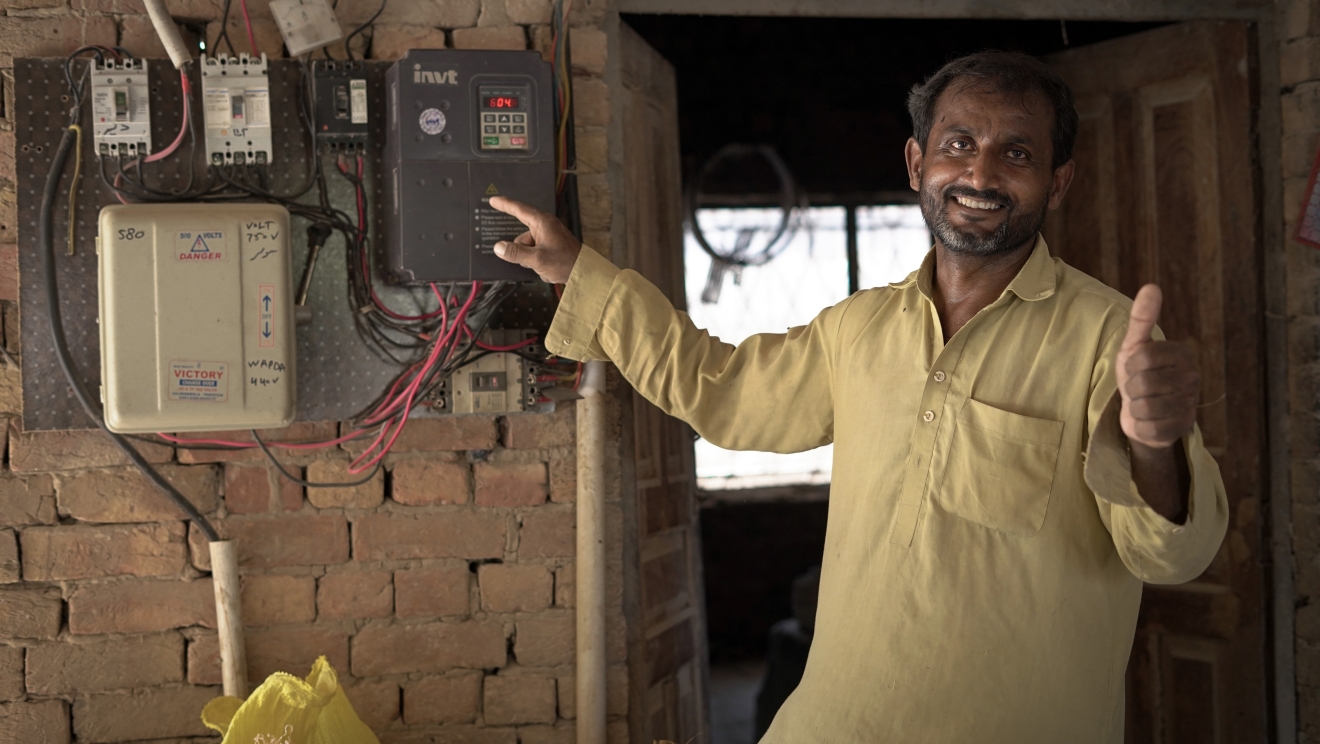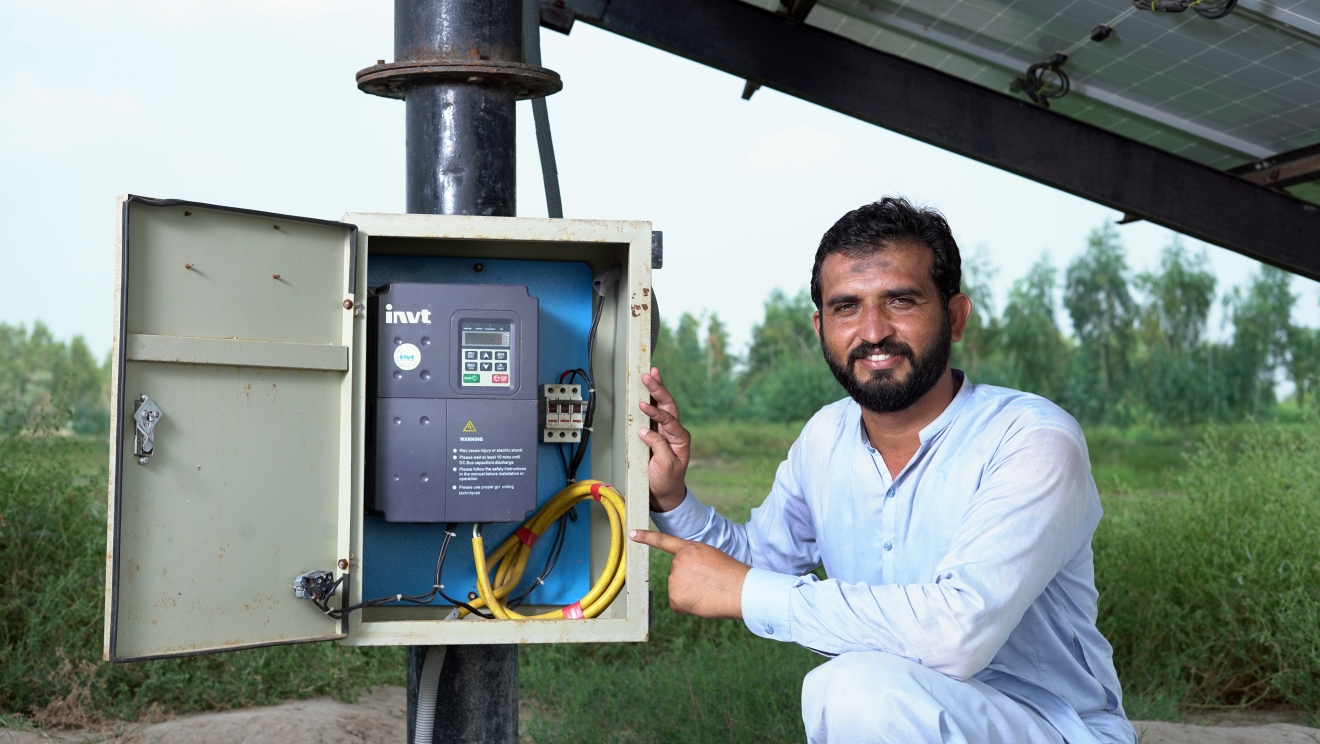

Pakistan's farmers feel the (solar) power
23 January 2024 Charles Arthur

In the photo (above), a smallholder farmer from Bhagwela, Rahim Yar Khan, in Punjab province, inspects her solar tube well, a type of water pumping system that utilizes solar energy to bring up water from underground sources, such as wells or boreholes. It is an eco-friendly and cost-effective alternative to the diesel or mains electricity-powered pumps commonly used in agricultural irrigation.
With the solar-powered tube well irrigating her farmland, the farmer has cut costs and improved her crop yields. She is one of the nearly 500 women and men engaged in farming and running small enterprises in the provinces of Punjab and Sindh who UNIDO has helped apply renewable energy solutions for productive uses. The National Rural Support Programme (NRSP), a leading microfinance and development organization in Pakistan, provides loans for the procurement and installation of renewable energy solutions, and UNIDO covers the interest payments so that the loans are interest-free.
Another farmer, Kaneez Fatima, from the Sargodha district in Punjab, expressed her thanks. "I own a small piece of land, and access to water and electricity is always a problem. I received UNIDO's assistance through the NRSP - an interest-free loan to purchase a 2KW solar panel to run a tube well to irrigate my land. The installation process was extremely smooth, according to the land irrigation needs and water level."

The electricity costs for beneficiaries have drastically dipped. A post-installation impact survey conducted by the NRSP found that 80% of respondents reported savings of of up to 15,000 Pakistani rupees (around €50) a month, with the other 20% saving even more.
Small farmers and entrepreneurs have been suffering from fuel price hikes in recent times. Agriculture and small and medium-sized enterprises (SMEs) are the mainstays of Pakistan's economy, providing jobs for around two-thirds of the population.
Rashid Bajwa, CEO of the NRSP, laments the impact of the enegy crisis on the economy. "The majority of our population generates income that is barely enough to meet their needs and the situation is getting worse," says Bajwa. "We need to adapt and improvise, and alternative or green energy just might be the solution that will enable our SME sector to sustain and grow."


The farms and businesses supported by UNIDO have not only reduced costs by switching from diesel, they are also helping save the climate. With a capacity to produce 1,825 MWh of clean energy a year, the project beneficiaries will be able to avoid more than 800 metric tons of CO2 emissions annually.
Shah Jahan Mirza, Managing Director of the government agency, the Private Power and Infrastructure Board, commended UNIDO for introducing renewable energy technogology to smallholder farmers and small enterprises in Punjab and Sindh provinces. "These rural communities generally don't have funding to finance these systems. There are also doubts and misconceptions about these technologies, i.e. they are not reliable and very costly, or may not help. Providing interest-free loans is a breakthrough. UNIDO has taken a lead in this which will go a long way, as the people have now started using this technology. "
The UNIDO initiative is part of a bigger project, Sustainable Energy Initiative for Industries in Pakistan, funded by the Global Environment Facility (GEF). Collaborating with public and private partners, UNIDO has facilitated investments in energy efficiency and renewable energy in 50 industrial units. In addition, UNIDO has placed significant emphasis on capacity building, and has trained more than 625 professionals, including 30 women, in energy management systems and energy optimization.
The project has yielded significant results, implementing more than 12MW of renewable energy projects in the industrial sector, and thereby reducing over 17,000 metric tons of CO2 emissions.
Further reading: Sustainable Energy Initiative for Industries in Pakistan